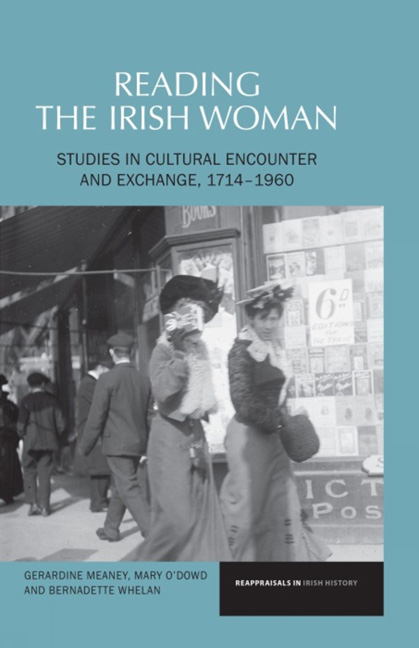5 - Producers and Consumers of Popular Culture, 1900–60
from Modernism
Summary
Introduction
The last two sections have been informed by the empiricist approach of the historian and they focused on the process of cultural transfer during two defining historical junctures. By contrast, this section uses the methodology of the literary and cultural scholar to engage in analysis of women's engagement with the cultural movement referred to as ‘modernism’ and with the popular cultural forms produced and read by women. Combining cultural history and textual analysis, it examines the role of women as cultural producers and consumers and the popularity and marketing of Irish women's writing in the USA.
Traditional literary histories identify two main trends in Irish culture in this period. Avant garde modernism, often but not always conducted in exile, dominates the literary landscape in retrospect in the figures of James Joyce, W. B. Yeats and, eventually, Samuel Beckett. This manifestation of the avant garde which has become a touchstone of Irish cultural achievement in the twenty-first century was very much at odds with the mainstream of Irish culture during the first half of the twentieth century. Where the mainstream was aware of it, it tended to dislike and frequently censor it. In contrast to this experimental and internationalist modernism, critical histories and anthologies have identified a muted, saddened realism as the predominant tone of this period, particularly in the Irish Free State and later the Republic. This construction of cultural and literary history has been challenged in the early twenty-first century from across the spectrum of critical practices.
As chapter four demonstrated, the influence of consumer culture was often denounced as an attack on national and religious identity, and the attractions of consumerism and modernity were rightly, if imperfectly, understood as powerful factors in female emigration. Despite this, as the analysis of the advertising campaigns for rural electrification has shown, the state itself participated in and promulgated the discourses of consumerism and modern advertising to achieve certain goals. In short, there were considerable inconsistencies and tensions in the hegemony of Catholic nationalism. This period was characterised by a conservative backlash against the forces of social change which had been gaining force since the 1890s.
- Type
- Chapter
- Information
- Reading the Irish WomanStudies in Cultural Encounters and Exchange, 1714–1960, pp. 179 - 195Publisher: Liverpool University PressPrint publication year: 2013



